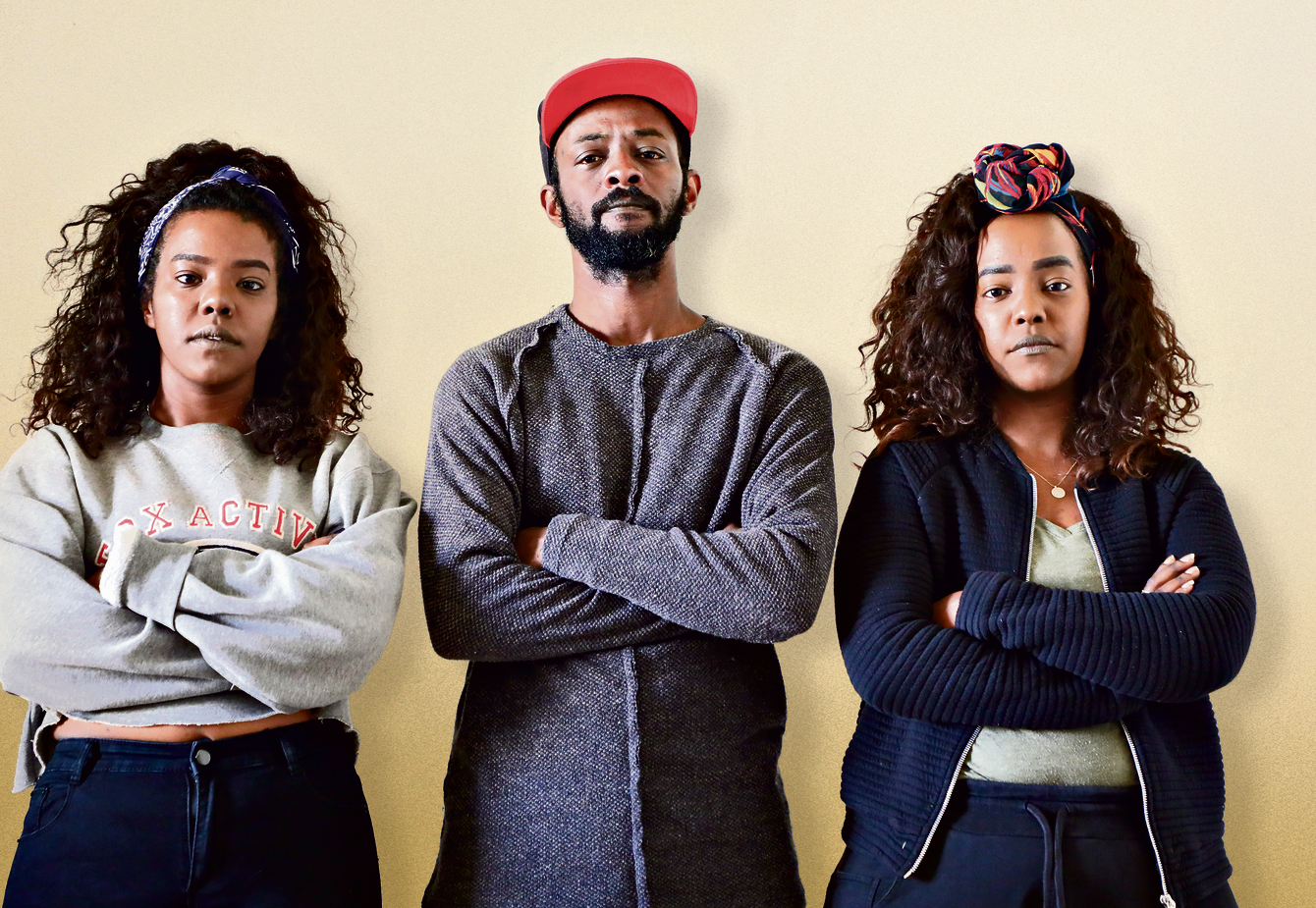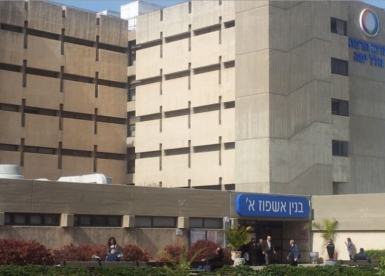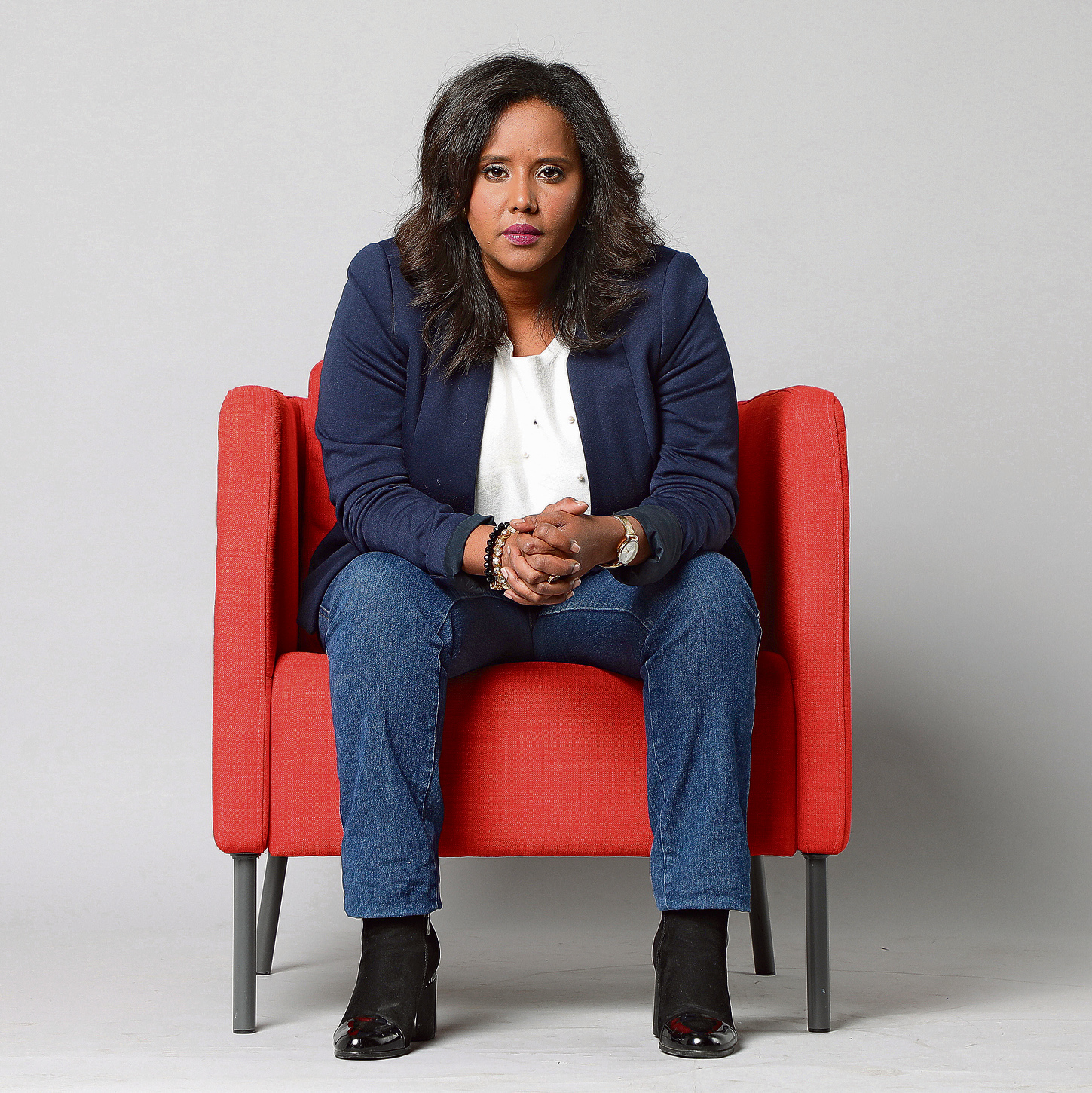
The Ethiopian babies who disappeared without a trace
The stories are the same: healthy infants were born to new Ethiopian migrants in Israel in the 1980s but were suddenly declared dead, with families not getting a chance to say goodbye or even bury them. With no graves to be found, some families don't even have death certificates. MK Pnina Tamano-Shata, whose family also lost two babies, demands a state commission of inquiry.
Refusing to believe it—after all, everything went well with the pregnancy and the birth—Efrat and Abraham asked to see their daughter, to no avail. "She was already sent away for burial," they were told. The baby's death certificate listed the cause of death as "other congenital anomalies."
In the months that followed, the couple inexplicably kept receiving child benefits for the baby they didn't even get to name before her burial.
Despite the questions that plagued them, Abraham and Efrat have decided—as many Ethiopians immigrants to Israel do—not to make a fuss. After all, they weren't even fluent in Hebrew. And so they buried their pain deep in their hearts and only spoke about it to family.
Thirty years later, reports emerging in recent weeks indicate there might be more stories like that of Efrat and Abraham: Babies who were born healthy and declared dead, at times without the families receiving any documents or proof of the passing, or even getting a chance to say goodbye. And none of them had a grave for the parents to visit. While most of the cases were of newborn babies, at least two concerned toddlers.
When we started searching for more information, the Chevra Kadisha (Jewish burial society) suddenly remembered that in two of the cases, they did have records of a place of burial. But when we went there, we found no trace of a grave. If there was a grave, there was no tombstone to give any indication a child was indeed buried there.
Because of the Ethiopian community's tendency to keep things to themselves, not to mention the shame they feel prevents them from talking about what happened—almost all of the parents kept quiet. Only the second and third generations, who opened Pandora's box, learned to their shock that the cases they knew about were not unique; others like them had lost siblings, who disappeared without a trace.
Efrat and Abraham made Aliyah to Israel in the early 1980s, before Operation Moses—the 1984 covert evacuation of hundreds of Ethiopian Jews to Israel. The couple had two children in Israel before they lost their third child on that fateful day in August 1985.
"This girl was born in time, and the medical tests we did before the birth were normal," Abraham says. "She was born in a normal birth without any complications. I was there when (Efrat) went into labor, after two days of contractions. In the evening, after the doctors told us (our baby) had died, I saw Efrat and told her, 'The most important thing is that you are healthy, that is what is important right now.'"
Abraham, 67, says that over the years he and his wife tried to get more information about their daughter's death and find her grave. In 1998, Efrat was diagnosed with cancer, which slowly ate away at her body. Her last wish was to know where her daughter was buried. She fought for her life for four years, all the while trying desperately to find out what had happened to her baby. But Efrat passed away in 2002, without ever finding out where her daughter was buried.
And you didn't get any documents?
"When we went to a gynecologist at the HMO clinic, he asked us to give him all of the documents from the hospital about the baby's passing, and we gave him everything. We didn't keep any documents."
Working together, the couple's children managed to locate a nurse who worked at the Hillel Yaffe Medical Center at the time and remembered the case, but she didn't have any new details to offer, nor could she help in procuring any evidence of the baby's passing.
"I want to know what happened there," says son Shmuel Daniel (who Hebraized his last name). "I want closure for my mother who passed away and for my father, and also for us the siblings who are looking for an answer."
In recent years, at the encouragement of his family, Abraham once again tried to find new information to shed light on the mystery. After repeated requests to the Chevra Kadisha in Hadera, Rabbi Haim Haberman found records of where the baby was buried: Block 5 of the children's section in the new Hadera cemetery.
Two weeks ago, we went to the cemetery to look for the grave and to find closure for the family. We were greeted with light rain as we entered the quiet cemetery. We searched for the burial spot for an hour using the records from the Chevra Kadisha, and when we couldn't find it we turned to the caretaker for help. He tried to assist, joined our search, and even called the manager of the Chevra Kadisha in Hadera himself—but the grave in question was not found. There were other graves of children—not many of them—with simple tombstones, sometimes with full name and dates, and sometimes with just a letter and the dating of passing. A tombstone or any other marking that would indicate that Abraham and Efrat's daughter was buried here were nowhere to be found.
"You don't hold a funeral for a baby who is less than a month old," Rabbi Haberman says. "But concerning this child there is a burial license, which means a funeral was held in accordance with law and custom." However, Rabbi Haberman has yet to present the burial license he says he has.
A disturbingly similar thing happened to Yael, 32. A few years ago, Yael's mother told her that she had a brother who had passed away. He was born in one of the hospitals in central Israel in the winter of 1984. Three days later, the mother was told he had passed away and had been buried before the family was told anything about it.
"Two years later I was born," she says. "All these years, my parents didn't tell me anything. That's how it is in the community, people keep everything to themselves; they don't tell anyone anything, certainly not about bad incidents and traumas like this. Two years ago, my mother fell ill, and then she told me what had happened, and she said she would have liked to have seen the child. We have a birth certificate; we ordered the death certificate, but I've yet to receive it. Someone at the Chevra Kadisha told me where the grave is support to be, but I looked for it, and I didn't find any tombstone or proof that my brother is there."
"The truth is that if I hadn't heard about the other stories from you, I would not have thought there was something out of the ordinary here. But now that I learn there are other cases like this from the same time, it's suspicious," she says.
"I'm not making accusations or determining anything. I don't know if they simply dismissed our parents to the point they just didn't bother telling them anything. What I do know is that after the stories about the Yemenite children, it's possible there might be something here, and I hope we can find out more before my parents pass away. Their generation kept quiet, we want answers."
Twins gone without a trace
Yesh Atid MK Pnina Tamano-Shata has a similar story to tell: she too lost two siblings, twins who were also born at the Hillel Yaffe Medical Center in Hadera in 1986. The twins are gone, without any records of where they were buried, and without her mother getting to see them or say goodbye.
"To build a just society, the truth needs to come out," she says. "We want a state inquiry commission to investigate all the cases of children's disappearances, from the 1950s to the 1990s. This is the worst thing for a mother, to wonder about the fate of her baby."
Pnina, her father, and four of her siblings made Aliyah in 1984. Her mother and two sisters—one of them only three months old—were left behind in the transit camps in Ethiopia.
After months apart, Pnina's mother finally arrived in Israel in December 1985 with her two daughters. Shortly thereafter, she became pregnant with twins, and in the fall of 1986 she went to the hospital to deliver her babies.
"I remember waiting every day outside the school gate. Eventually my mother came back home alone. No one really said anything, there was an intense silence, but with time we realized there were no babies," she says. "It's a scar for life. It stayed with me over the years. I had this thought that maybe they didn't die, maybe they were alive."
Pnina's older siblings also wondered the same thing. "Since I was young, I've been grilling my mom about the children, I asked her about the twins a lot," says Dvora Nativ, Pnina's elder sister. "Mom preferred not to say anything. In recent years she suddenly started talking about it, about how she heard the baby crying, alive, and they didn't even let her see her. It left her with a dull pain she preferred not to touch."
Dvora, a social worker, couldn't let the matter go. A few years ago, she and her siblings went to the Interior Ministry to look for answers. A while later, they received death certificates for the two babies, which said they passed away three days apart. There was no record of a grave.
"When I told mom there were death certificates, she asked me, 'Where did they bury them?' I said I didn't know if there even is a grave. And she said, 'In Ethiopia, they'd bury even a newborn baby. What are they doing with them here?'" Dvora says.
Pnina is also bothered by this issue. "I don't know if it's true, but let's say the kids did pass away. Why weren't their parents given the chance to bury them?" she asks in anger. "What did they do with them? Throw them away? The thought of this is horrifying and inhumane."
Tamano-Shata recently took a short break from the Knesset. When she returned ten months ago, she joined a special committee led by Likud MK Nurit Koren to deal with the abduction of Yemenite babies. "One of the topics that kept coming up at the committee was the disappearance of the children from HaSharon Hospital in Petah Tikva," Pnina says.
One after the other she heard stories from different sectors, which happened at different times, but they were all parents from disadvantaged groups who were left wondering whether their children had really passed away as they were told. If they were, why were the children taken from them? Why weren't they allowed to bury them? And where are the graves, or at the very least the mass graves? And if they didn't die, what happened to them?
"For years the state told these people they were delusional and imagining things," Tamano-Shata says. "It's not possible for hundreds and maybe thousands of people to all be delusional and lying. It's not possible that hundreds and maybe thousands of babies had just disappeared like this, without a trace. The stories are piling up, and the leaders of the state must bring everything to light. We must give these thousands of families a relief and justice."
Dead babies but no graves
A month ago, we raised the topic in a conversation with friends and were surprised to learn that some of them know of similar cases. One friend told us about a younger sister "who was born at Hillel Yaffe, and my parents were told she had died, without providing them with any details." Another friend told us about his cousin, only a few months old, "who was hospitalized in 1984 or 1985 with the flu, and his parents were simply informed he was dead, without proof or a place of burial. Nothing. They just dropped it on them."
We are investigating yet another case we learned about, searching for a place of burial or any other information.
Almost all of these cases, with a similar pattern, happened between the years 1981-1985. A previous article in Yedioth Ahronoth revealed that the Chevra Kadisha sometimes buries stillborn babies and babies who died at birth in mass graves and don't always keep an accurate record of these burials.
But not all of the cases concerned newborns; there were at least two cases at a Nahariya hospital of toddlers, aged one and two, both children of Ethiopian immigrants, who also died and buried without their family's knowledge.
The first case happened to Danny and Edna (not their real names), who made Aliyah to Israel with their infant daughter on December 21, 1984, during Operation Moses.
A few days after they arrived in Israel, their daughter was admitted to a hospital in Nahariya. The girl was in the hospital for over a week until, on January 6, 1985, the parents received the shocking news: "Your daughter passed away." The hospital didn't have an interpreter, which made it difficult for the parents to communicate with the hospital staff.
When we looked into the matter, we found the girl's death certificate (which listed the cause of death as pneumonia), but there was no record of a funeral or a place of burial. Nahariya's religious council told us there was no record that the girl had been buried in the city.
The second case happened at the very same hospital. Their son was born in March 1986, two and a half years after the couple arrived in Israel. When he was a year and a half old, he suffered an asthma attack and was taken to the hospital. Shortly afterwards, his parents say, the doctors told them that their son had passed away. Once again, there was no funeral—or if there was one, it was held without the boy's family.
"Over the years, we turned to the Chevra Kadisha, and even paid people to find our son's burial place," the mother says. But his grave was never found.
"My mother deserves closure, and she shouldn't have to fight to find out where her son is buried," says S., the couple's daughter. "To begin with, I don't understand why she even had to fight. Why wasn't she given this information in a transparent manner? I want her to know where she can lay flowers, mourn, get closure, at least in that regard."
While working on this article, we contacted the Chevra Kadisha, the hospitals and the Health Ministry. We got the impression the left hand doesn't know what the right hand is doing. In two of the cases, we received information about burial plots that did not exist. In other cases, we were told there was no record. The hospitals claim they don't deal with burials, and so they don't know what happened. In an off-the-record conversation, one official in the Chevra Kadisha admitted that it was possible that babies who died in birth or shortly after were buried in a mass grave.
A senior nurse who worked at one of the hospitals in question said this week that children were buried without invovling the parents.
, "I encountered two cases at the hospital of Ethiopian children whose parents received news that they had died. In one case, I think what happened was that after the child died, they simply said, 'These are Ethiopians, new immigrants, they won't understand anyway. Let's bury the child without making a fuss.' I really don't know what happened with the second case."
The Hillel Yaffe Medical Center offered the following response: "The hospital will look into the request in an attempt to locate the relevant information, which is from many years ago and is at an external archive."
The Galilee Medical Center in Nahariya offered the following response: "Information about a deceased person, regardless of his age, is only given to one of the individuals or bodies mentioned in the 'waiver of medical confidentiality' form."
The Health Ministry said it was not familiar with the details of the matter and did not provide a response.














